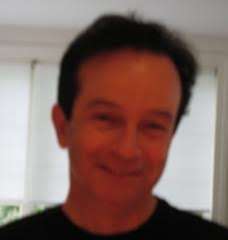The Boston Symphony and Andris Nelsons capped their decade-long traversal of the major works of Dmitri Shoshtakovich with an incandescent performance of Lady Macbeth of Mtsensk, bringing to a close a performance and recording project originally limited to the symphonies written “Under Stalin’s shadow”. It has eventually come to embrace all his major orchestral works and stands as the hallmark of Nelsons’ first ten years as Music Director.
Several rows in Symphony Hall were removed to accommodate the stage extension necessary to hold the the orchestra (augmented by extra players), soloists and chorus. Primary colors successively projected onto the back wall set the moods. The soloists were dressed in variations of concertwear with some adjustments, the Shabby Peasant most notable of all with his tie and collar askew and belly exposed. Kristine Opolais wore two gowns with puff sleeves designed expressly for these performances – one white (Acts 1 and 2), the other black (the final two acts).
Her Katerina is trapped, her sleep-deprived life a waking, draining nightmare, the Izmailov Estate her prison, the men around her a cavalcade of toxic masculinity. She may have a given name but no identity, other than “the merchant’s wife”. Initially, Opolais embodied a wraith, her voice monochromatic then full of glacial resentment and disdain when provoked by her father-in-law and husband. Flashes of more began to appear in the second scene, first when she rebukes the abusive workers and decries the lot of Russian women, then when she accepts Sergei’s challenge to wrestle. Though his love is a mirage not an oasis, it lights a fire in her: a frenzied hunger for a life to be lived and at any cost. After Sergei’s betrayal on the march to Siberia, she is drained once more, dead as soon as she realizes his love is false. Opolais remained onstage, once again blank and still, Katerina a ghostly presence as her own death unfolds. Her acting was riveting, colored by her sensitivity to the words, and well served by her singing. Sometimes her voice turned shrill, sometimes she was covered by the orchestra’s wall of sound (in that she was not alone), but overall this was an imaginative and powerful performance.
The cast seemed to have been encouraged to play against the orchestra. Anatoli Sivko, for example, did not portray the Police Chief as some buffo caricature as the orchestra suggests, but as dead serious and therefore dangerous. Günther Groissböck’s Boris, for all his bluster, remained repulsive and genuinely threatening, though the visual of a singer jostling his jaw to get the sound out detracted somewhat. Brenden Gunnell’s Sergei managed vocally to be both ardent lover and callow cad. Alexander Kravets’ shambolic Shabby Peasant nearly stole the show and the remaining singers created sharply defined characters, sometimes in the briefest of appearances.
Liberating Shostakovich’s huge orchestra from the pit presents challenges to the singers nearly impossible to meet. At times, soloists would be giving their all yet ended up looking like they were enacting Mother Courage’s famous silent scream. Though Nelsons overall was masterful at managing the wide dynamic range Shostakovich asks for, there was still an aspect of this performance that brought the visceral vehemence of heavy metal to mind. Passages marked quadruple and quintuple forte felt like they would blow everyone seated on the floor to the back of the hall and out onto Huntington Avenue.
Add the chameleonic chorus at full throttle to the mix and the effect was, dramatically speaking, overwhelming. Shostakovich turns his orchestra into a Greek Chorus, sometimes sympathetic, sometimes irreverent or derisive; there are many more characters in this opera than those on two feet. Nelsons made sure the panoply of genres and voices in the orchestra used to that end sounded clearly and effectively. The opera clocked in at a bit over 173 minutes. With a 7pm curtain and a 20-minute intermission between Acts 2 and 3, it made for a long evening. But the clock didn’t matter.




